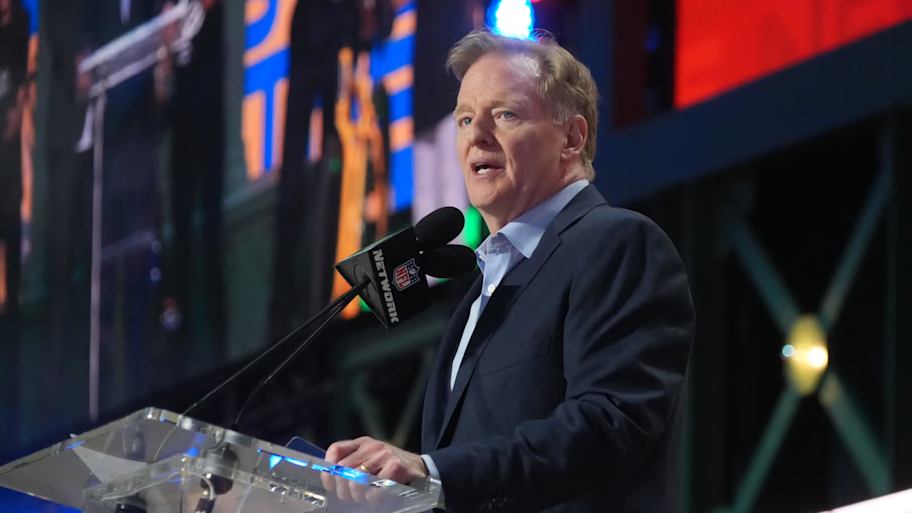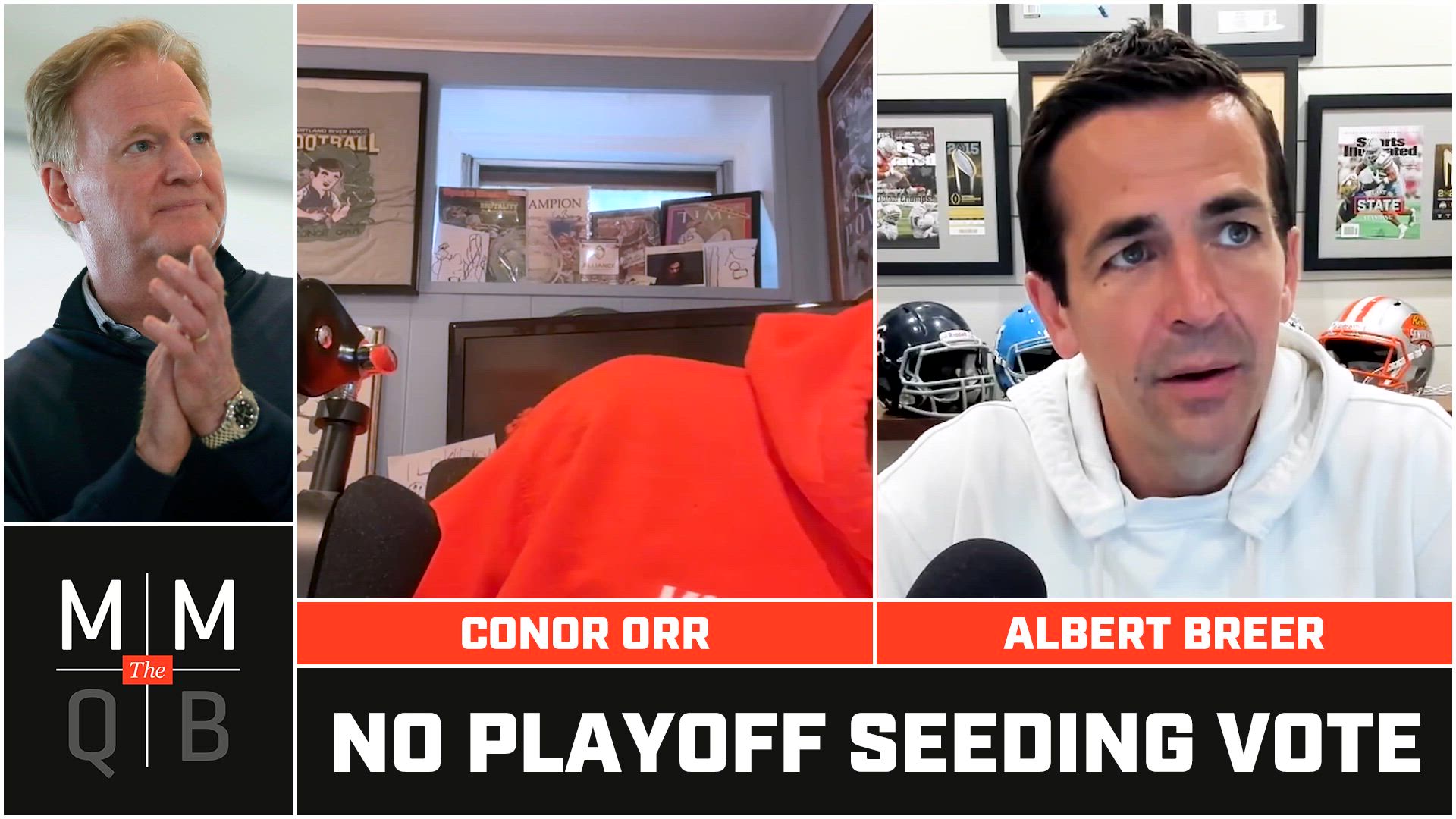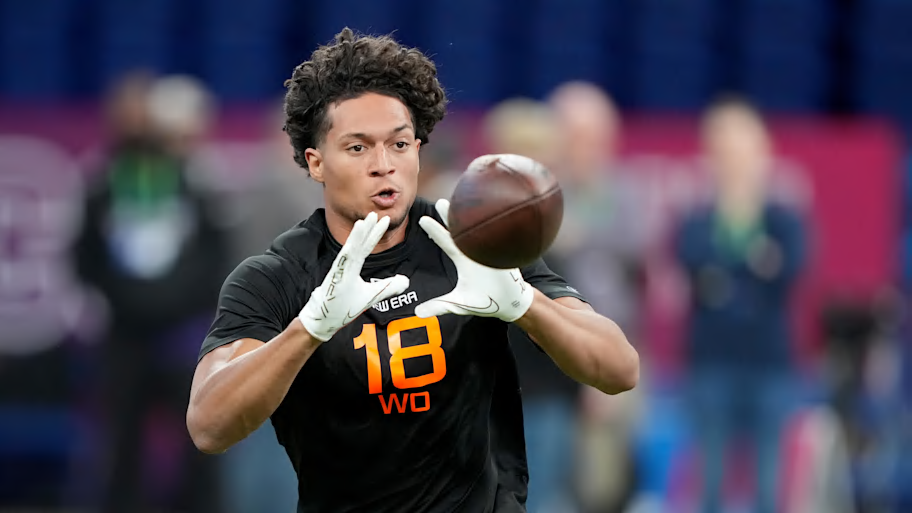

As NFL teams put in their final offseason work before the league’s true six-week offseason, NFL owners finished up some Business of Football at their annual May meeting. The meeting, a much more owners-only affair than the March meeting that included coaches and front office staff, resulted in some news and transactions that again showed the brand’s power. Let’s examine.
Hardening of the cap?
Lost in the reports from the meetings last week about a failed ban of the tush push and approval of NFL players for Olympic flag football were some comments from commissioner Roger Goodell that sounded foreboding to the salary cap as we know it, and to the NFL Players Association.
Goodell called into question the “integrity” of the cap, specifically calling out teams such as the Philadelphia Eagles and Los Angeles Rams for their common use of “dummy years” that automatically void. What Goodell is referring to is the teams’ ability to add years to contracts that will never actually happen—they automatically void after the last “real” contract year—to allow for signing bonus proration into those phantom years. It is a relatively simple tactic to allow for less cap-loading in the present while pushing the cap-loading to when those years void.
It sounds like Goodell, with some support from some owners, is hinting at a proposed revolution of cap mechanics that have been in place since the cap was introduced in 1993. Proration has been a major feature of NFL cap management; signing bonuses—and future option bonuses—are prorated for cap purposes, allowing teams to pay out more cash than cap (as I’ve explained before). For example, if a player has a $50 million bonus over five years, the cap treatment is $10 million per year for that bonus. And teams have leverage proration with shorter contracts, adding dummy years strictly for proration purposes.
As I have said many times, for reasons above, the NFL does not have a “hard cap.” Proration allows for a soft cap (a “yarmulke” for my Jewish friends).
Interestingly, the coming cap in college sports, per the House settlement, will be a hard cap, with no proration allowed.
Goodell is hinting that in the next CBA negotiations, there may be a push from ownership for a hard, or harder, cap. As for NFLPA opposition, well, that has never really stopped the NFL before. Stay tuned.

Rookie contract disputes? Money no, language yes
As we know, the most recent NFL CBA predetermines financial compensation for every drafted player. We know what that player will make at the moment he is picked. This begs the question every year as to why there are any contract disputes at all with rookie contracts. Alas, the CBA does not address other parts of the negotiations, such as guarantee status or contract language. Thus, we have some disputes, including some current prominent ones.
Over the years, first-round players and agents have been able to negotiate fully guaranteed four-year contracts for all players in the round. Now that full guarantee has spilled into the second round. The Houston Texans broke the seal on fully guaranteed contracts for second-rounders on May 8 with Jayden Higgins, the second pick in the second round. The next day, the Cleveland Browns, who had the top pick in the second round, Carson Schwesinger, had to follow suit. Since then, none of the other 30 second-round picks have signed. The teams below the Browns and Texans are trying to hold the line on guaranteeing only three years, or part of the fourth year at most, while agents will certainly press for the full four-year guarantee. The precedent has been set—as other teams curse the Texans—and from an agent point of view, there is blood in the water.
Another dispute involves Shemar Stewart, the Cincinnati Bengals’ pick at No. 17. He has refused to practice in offseason activities due to the Bengals’ insistence in inserting contract language that would, again, set new precedent. According to reports, the Bengals want language that would require Stewart to forfeit future guarantees—which could be significant—if there is a “default.” A default could be discipline, a suspension, a positive drug test or whatever could trigger the team declaring such “default.”
The Bengals have not inserted language in their rookie contracts such as this before, and didn’t do so with last year’s No. 18 pick, Amarius Mims. It sounds like Stewart’s agent has good reason to keep him from practicing, and this looks like it will not end soon. I know the Bengals; they can be hard-headed in negotiations, and it sounds like they are trying to force this language into their contracts to serve as a precedent for all their future rookie contracts. Settle in. This one may last well into training camp.
Speaking of NFL teams and having their way …
Hundreds of millions, zero loss of control
As part of the most profitable and popular sports league in history, NFL owners now realize they can sell off small (or even tiny) parts of their franchises to create some true liquidity, without giving up an ounce of control. After the Buffalo Bills, Philadelphia Eagles and Miami Dolphins sold off small parts of their franchises a few months ago—the Bills and Dolphins taking advantage of new allowances for private equity transactions—three other teams have joined the party.
The San Francisco 49ers are selling 6% to three families at a valuation, per Sportico, of a staggering $8.5 billion. The Los Angeles Chargers are selling 8% to Arctos, a private equity firm approved by the NFL, with the Spanos family still retaining roughly 61% of the team. And the Cleveland Browns are selling a 0.1% stake to former NFL superstar Charles Woodson, someone with whom I have some history at the Green Bay Packers.
The 49ers are bringing in some valuable Silicon Valley money. The Chargers are getting a cash infusion for what has been a family business. And the Browns are getting a bit of celebrity for a downtrodden franchise.
In all these cases, there is no downside for ownership. They are adding cash and name partners while giving up zero control. NFL owners are once again winning big at the business of football.
And speaking of winning the business of football …
Purdy paid
The most underpaid player in the NFL is no longer. Brock Purdy has been making less than $1 million per year as the starting quarterback of the 49ers for the past three years while his veteran peers—some who are certainly lesser players—are making up to 50 times that number. Interestingly, were Purdy not picked with that last pick in the 2022 draft, and had signed as an undrafted free agent instead, he would have been able to renegotiate last year, as only drafted players have to wait a CBA-mandated three years to renegotiate.
As to the numbers, the “new money” is reported as five years, $265 million, for a $53 million average. Taking into account the existing year remaining, the total value is six years, $279 million, for an average of roughly $45 million. Any way you look at it, that is strong money for Purdy as, in my opinion, the 49ers still had some leverage here given the alternative for Purdy was to play yet another year for peanuts on that last-pick-in-the-draft contract.
The bigger picture is that the starting quarterback market continues to be skewed between players on incredibly undervalued rookie contracts and those extended at levels north of $50 million. The outliers seem to be Justin Fields, now at $20 million a year with the New York Jets; Sam Darnold, a Seattle Seahawks free agent at roughly $34 million; Baker Mayfield, a bargain for the Tampa Bay Buccaneers at $35 million; and Geno Smith, a Los Angeles Raiders trade acquisition at roughly $40 million.
Other than those four, there seems no middle ground for starting quarterbacks.
This article was originally published on www.si.com as Business of Football: Making Sense of Roger Goodell’s Comments About the Salary Cap.







